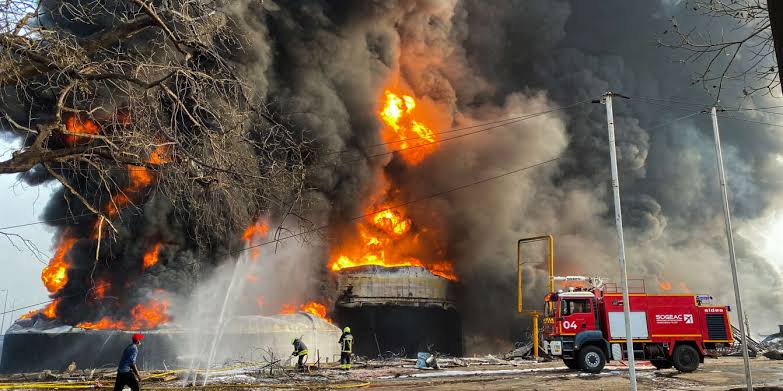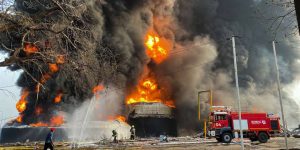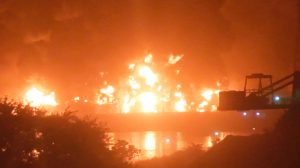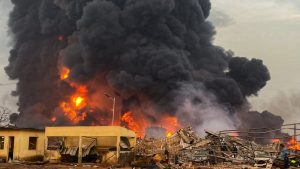
Guinea in Grief: Explosion Tragedy Claims Lives, Sparks Fuel Frenzy

A big explosion occurred at a fuel depot in Guinea’s capital, Conakry. At least 23 people died, and over 240 were injured. The fire damaged a large area, affecting homes and businesses. The government declared a three-day mourning period.
The blast caused a petrol shortage, leading to protesters and security forces clashes, as citizens needed to fuel their motorbikes. Roadblocks were set, and tires burned. NGOs worry about media restrictions during the crisis.
There were demonstrations requesting that the fuel supply be reopened and urging the government to meet people’s needs. The situation is challenging for those relying on motorbike fares for a living.

International support is being sent, including condolences from Pope Francis. Investigations are ongoing to figure out the cause of the explosion. The government faces challenges in managing the aftermath, including protests and media concerns.
In light of these challenges, there is a pressing need for the government to prioritize the well-being of its people. Timely action to restore normalcy, assist the affected families, and ensure access to essential services is essential. Additionally, transparent communication and collaboration with the public can help build trust and alleviate concerns during this difficult time.

As Guinea faces this multifaceted crisis, international support and cooperation can play a vital role in aiding recovery. The solidarity expressed by Pope Francis and others underscores the importance of a unified response to mitigate the impact on the affected communities.

Ultimately, the government’s commitment to addressing this tragedy’s immediate and long-term consequences will be crucial in restoring stability and improving the lives of the people affected by this unfortunate event.
Read: N-Power program: Beneficiaries Raise Alarm
About The Author
Related Articles
Ivory Coast to Buy Unsold Cocoa to Support Farmers
Ivory Coast has announced a government plan to purchase unsold cocoa stock...
ByWest Africa WeeklyJanuary 23, 2026Ghana Moves to Reclaim Kwame Nkrumah’s Former Residence in Guinea
Ghana has embarked on a diplomatic and cultural initiative to reclaim the...
ByWest Africa WeeklyJanuary 23, 2026Senegal Honors Players and Coach After AFCON Triumph
Senegal has formally honored its Africa Cup of Nations winning team, awarding...
ByWest Africa WeeklyJanuary 23, 2026Burkina Faso, Mali, and Niger Turn to Russia for Shared Telecom Network
Burkina Faso, Mali, and Niger have announced plans to develop the Sahel’s...
ByWest Africa WeeklyJanuary 23, 2026











